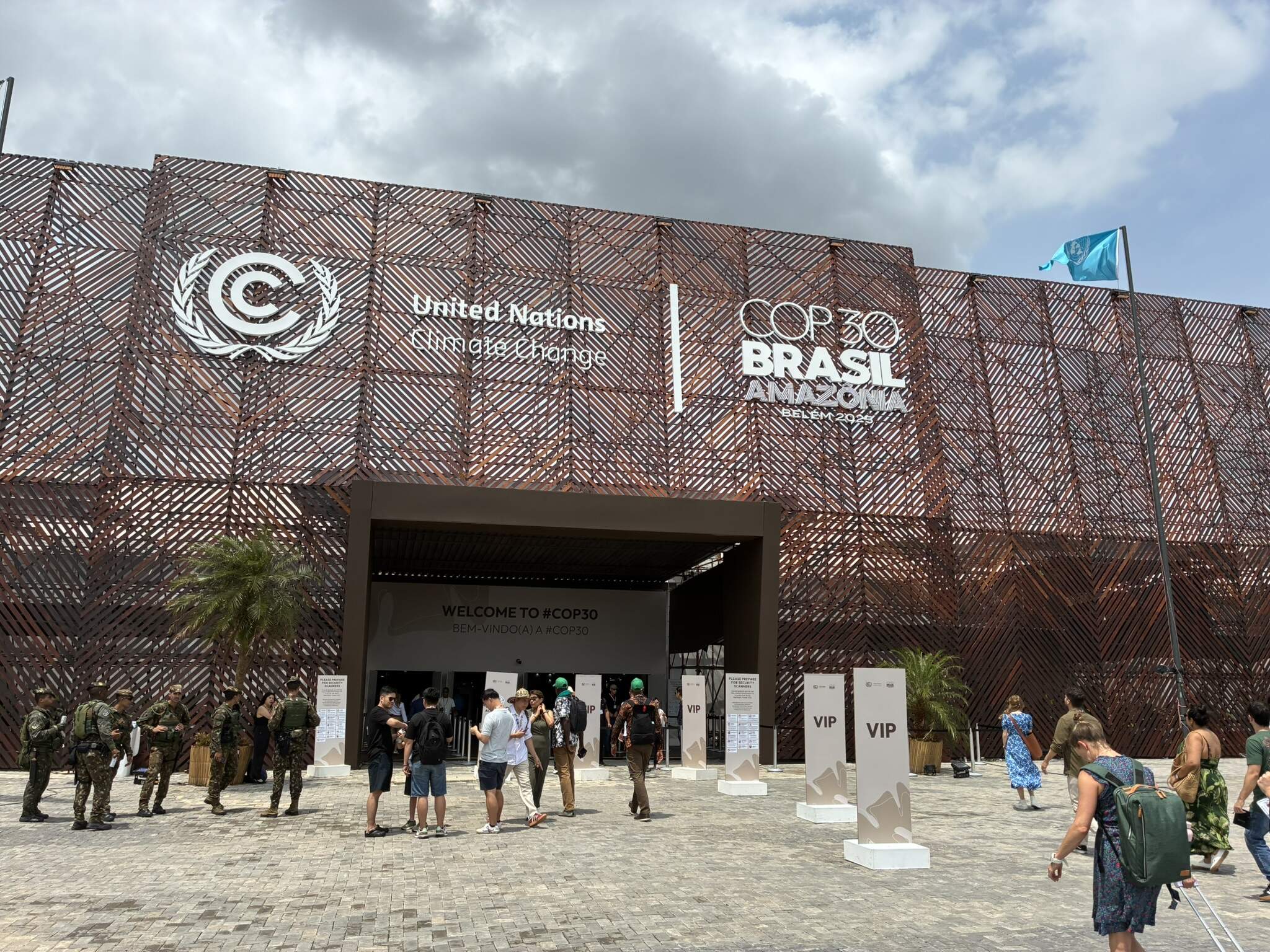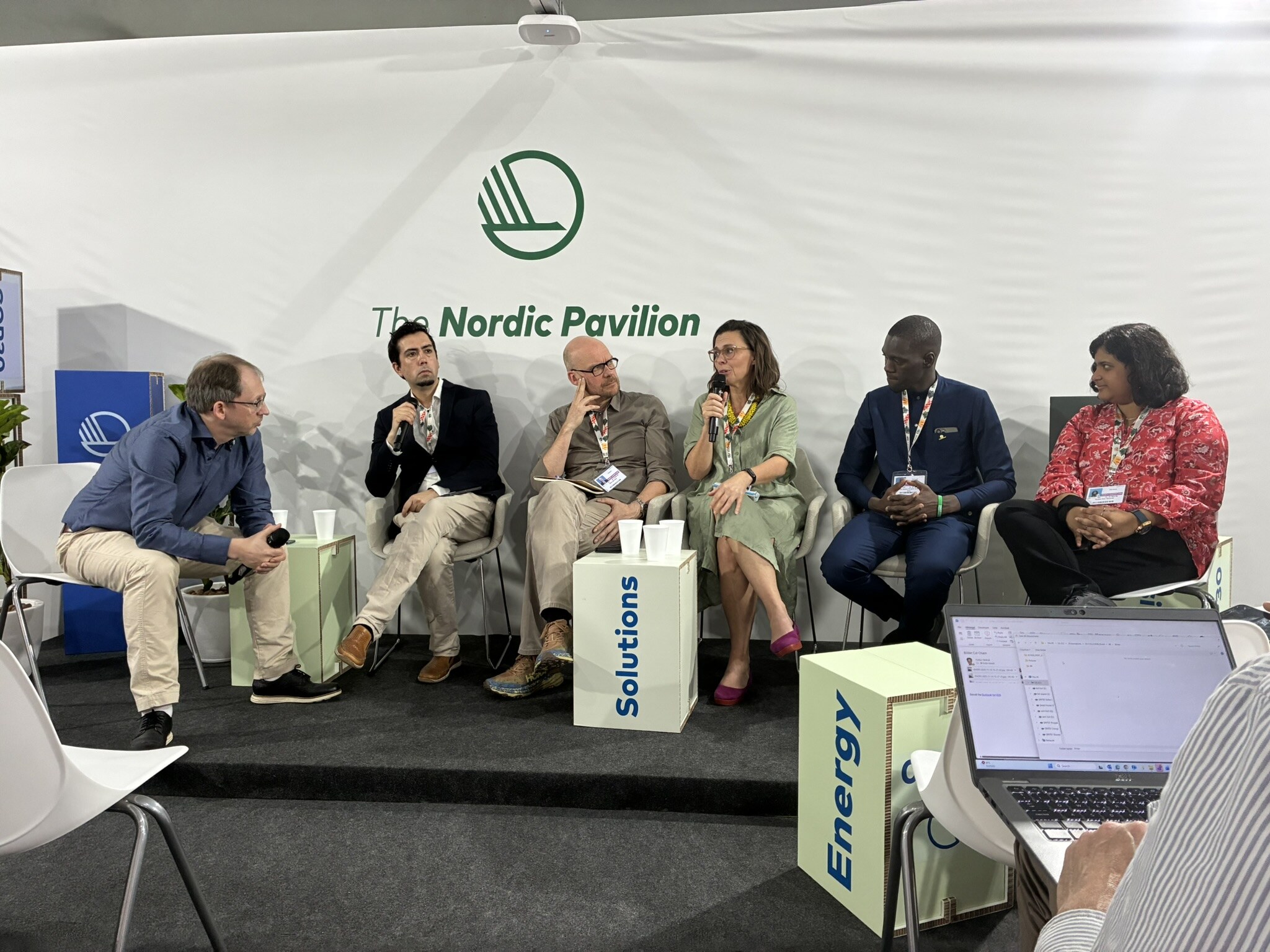KTH dES in COP30 in Belém

At the UN Climate Change Conference (UNFCCC COP30) in Belem, Brazil, the Division of Energy Systems (dES) at KTH Royal Institute of Technology highlighted how rigorous energy systems analysis can support the delivery of countries’ Nationally Determined Contributions (NDCs).
As the main tools for implementing the Paris Agreement, NDCs translate climate ambition into sector-specific targets for power, industry, transport and other emitting sectors. In many developing countries, scarce data and limited institutional capacity weaken these assessments, making open-source models and sustained capacity-building partnerships, such as those involving KTH dES, a practical way to close that gap.

During COP30 , Åsa Persson represented the Division and co-organised a side event in the Nordic Pavilion with other Nordic technical universities. The session showcased concrete examples of how research and education can strengthen climate-compatible energy planning, including the RE-INTEGRATE project, the CLEWS (Climate, Land, Energy and Water Systems) modelling framework, and KTH’s approach to challenge-driven education with national and international partner universities. A new policy brief, Developing Institutional Capacity – A Best Practice Brief , developed by the Climate Compatible Growth consortium with contributions from researchers in the Division, was also presented. It provides concrete guidance on how institutions can build the capabilities needed to plan and implement ambitious energy and climate strategies.
With forthcoming UNFCCC Conferences of the Parties scheduled in Türkiye (2026) and Ethiopia (2027), the Division of Energy Systems will continue to contribute policy-relevant analysis, open modelling tools and targeted capacity support to help countries design, implement and enhance NDCs and advance climate-compatible energy transitions.
